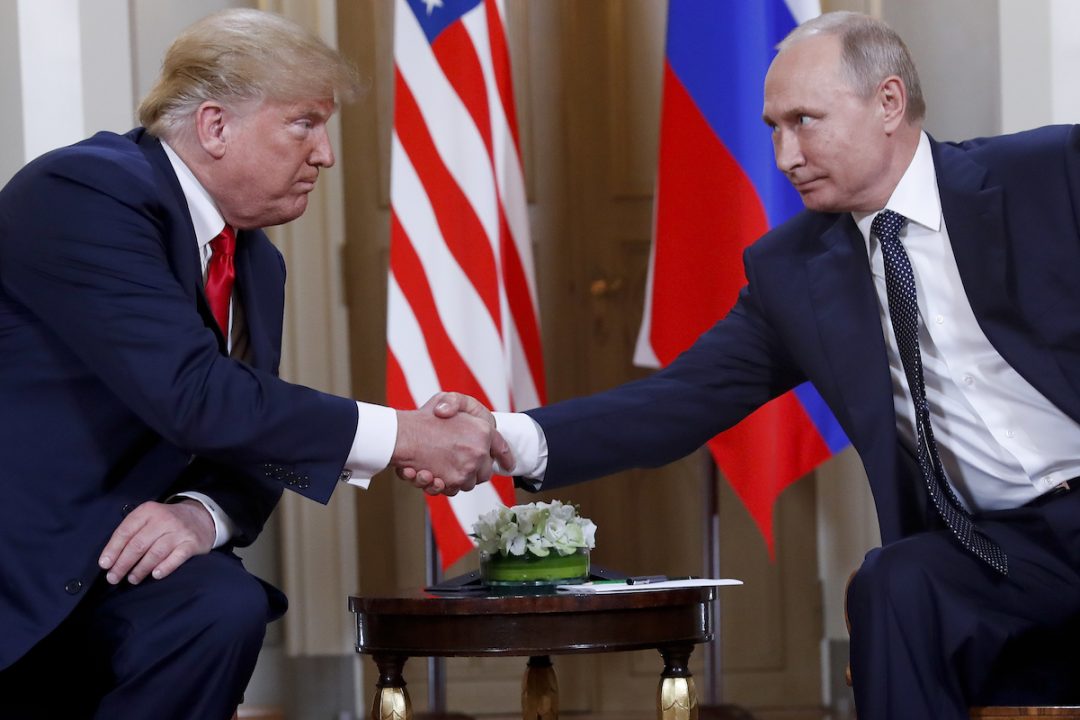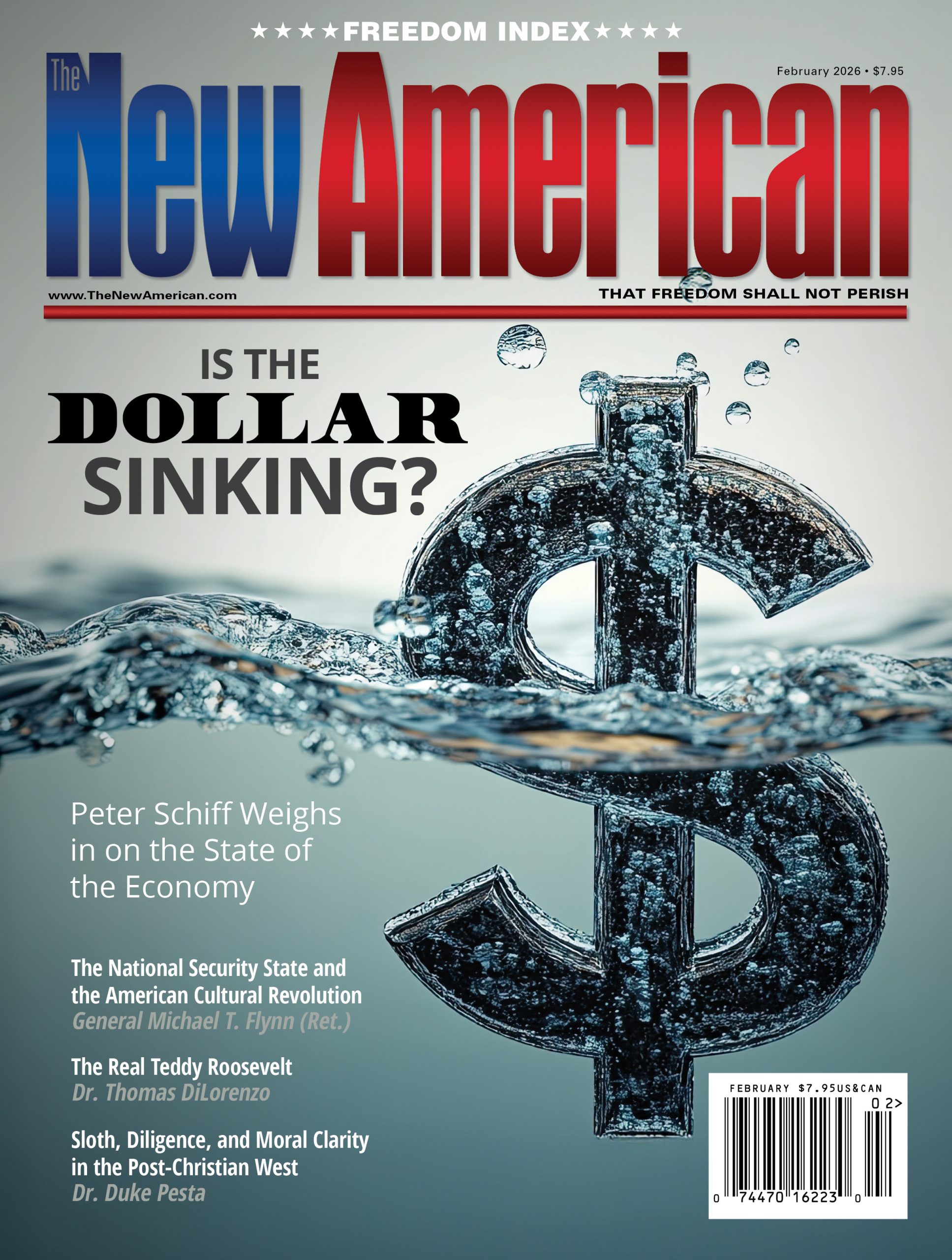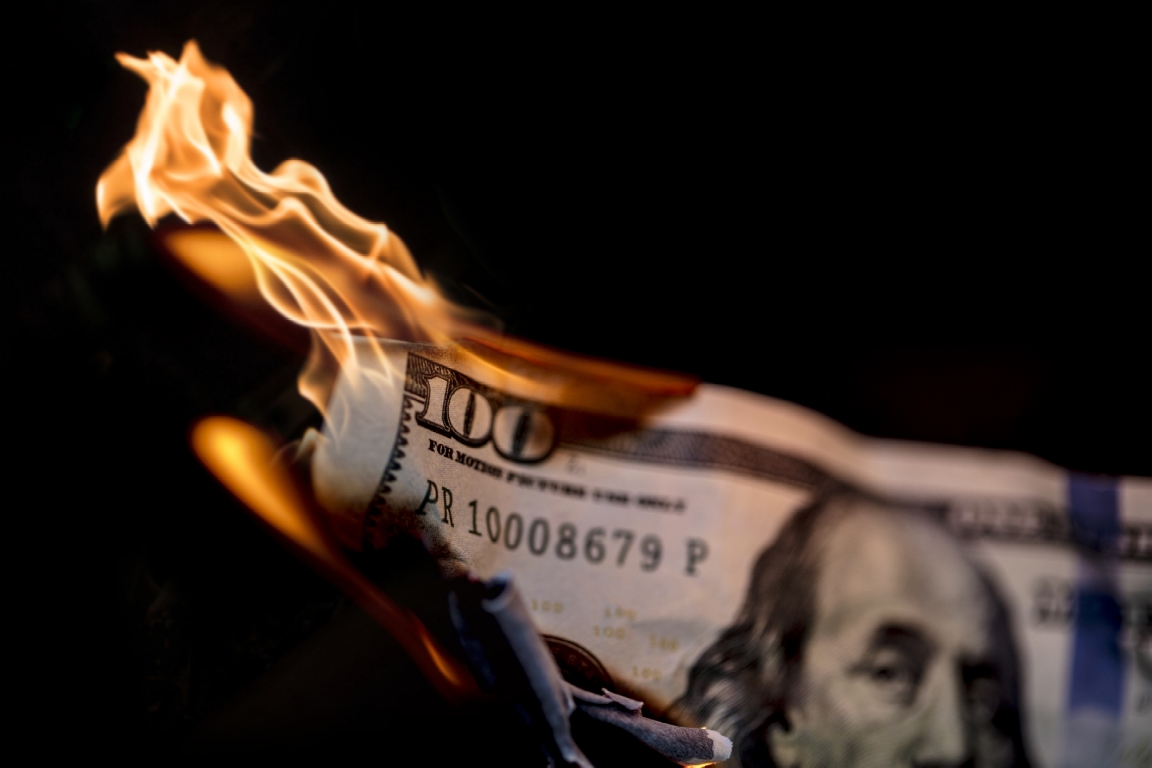
Newer World Order? Is Trump’s U.S. Now Closer to Russia Than “Soviet” Europe?
It was more than a decade ago now that I wrote about “Soviet Sweden.” The focus was that nation’s suicidal multicultural and immigrationist policies and suppression of free speech. Even if Sweden then “led” its continent in this regard, however, all of Western Europe exhibited the same cultural trajectory. And now, 11 years later, another writer notes, “The European Union is fast becoming the ‘politically correct’ reformulation of the old Soviet Union.”
Of course, many have made a similar observation — notably Vice President J.D. Vance. In his now legendary Munich speech last Friday, he criticized European governments for enforcing woke standards via free-speech suppression. In contrast, President Donald Trump is negotiating with Russia, whose leader, Vladimir Putin, the Biden administration wouldn’t even talk to. It’s a striking turnaround, one that raises some questions.
With Russia being nationalism-oriented and Western Europe largely internationalist, are we now more culturally aligned with Moscow than the EU?
And how much can the U.S. (at least its MAGA portion) have in common with today’s uber-woke Western Europe?
Is Western Europe Now the “Sick Man of Europe”?
Addressing the latter question is the aforementioned writer, one J.B. Shurk. As he opines today:
I do not enjoy having European toffs lecturing us about the blessings of “green” energy, the dangers of free speech, or the morality of turning a Ukrainian civil war into an excuse for turbo-charging WWIII. I find it stunning that the leftovers from Europe’s hereditary guild of inbred nobles still see themselves as global leaders of anything when they lack the military strength to protect their own countries from invasion.
My, Shurk should stop mincing words and tell us what he really thinks. Joking aside, he goes on to mention how the U.S. first rebuilt European economies with the Marshall Plan. We subsequently enriched them further by, for decades, paying for their protection and tolerating lopsided trade deals. Shurk then writes:
How have European leaders used these economic and military gifts from the United States? They have adopted oppressive forms of socialism that make many Americans wonder whether anything was really gained by liberating Europe eighty years ago.
Censorship and political persecution are endemic across Europe today. The U.K. locks up pro-life Christians for praying silently on the street. Germany arrests citizens for making fun of politicians online. Romania cancels elections when the “wrong” candidate wins. European governments may be too impotent to declare war against actual foreign enemies, but they are lions when it comes to waging war on their citizens’ private thoughts and public speech.
Allies or Adversaries?
Finally, Shurk sums up: “Europe has built an unaccountable bureaucracy that forces its citizens to obey and calls this ‘democracy.’ The European Union is fast becoming the ‘politically correct’ reformulation of the old Soviet Union.”
In contrast, the land that once was the Soviet Union is now very different. Many forget that years ago, Putin inveighed against multiculturalism, relativism, and the sexual devolutionary agenda. For example, “Policies are being pursued that place on the same level a multi-child family and a same-sex partnership, a faith in God and a belief in Satan,” Putin stated in a 2014 speech. “This is the path to degradation.”
Russia has backed up this talk with action, too. While European nations may arrest people for criticizing homosexual behavior, Moscow outlawed pro-homosexual propaganda in 2013. While Western countries have promoted foreign ideas, the Kremlin has criticized “tolerance” and those “imposing alien values on society.” While European lands cultivate the culture of death and replace their own people with migrants, Russia instead pays Russian women to have children. Most of all, while European leaders are globalists, philanderers of nations, Putin is a staunch nationalist faithful to mother Russia.
This brings us to a point. A major reason for the Cold War with the Soviets was that their state ideology was antithetical to ours. They were, as President Ronald Reagan put it, an “evil empire.”
So what does this imply about today’s EU, with its perhaps antithetical ideology? Can we call it an enemy just as 27 percent of Canadians called the U.S. in a recent poll? Should Russia and Putin now be our friend?
Not exactly.
Prudence, Not Puerility
As has been said, nations don’t have “friends”; they have interests. Western Europe is and can remain one of our interests.
But Russia can be, too.
Yes, Russia is corrupt — so is Western Europe. They’re just corrupt in different ways. We’re also corrupt, by the by (and hopefully DOGE-like efforts will root out much of our corruption). Let he who is without sin cast the first stone.
This said, in the past we’ve tied moral requirements to foreign aid. Likewise, we can now pressure the EU to treat its woke mind virus — and thus help empower its anti-establishment forces. This brings us to another point.
As Shurk wrote in his title, “Europeans who love freedom have a friend in the White House.” Not all Europeans desire the old “new world order,” just as most Canadians don’t consider the U.S. an enemy. In the same vein, far too many “Americans” crave European norms. Be not deceived, either: We’re just one or two unfavorable elections away from getting them.
So the real battle isn’t between the U.S. and EU any more than it’s between NATO and Russia. Closer to the Truth is that it’s between nationalists and globalists. The whole Truth, however, is something else:
It’s between good and evil.
And the moral here is, we can recognize both the good and the evil in both Western Europe and Russia. We can, too, encourage the good and reject the evil and view both civilizations as interests — insofar as they’re not Soviet-like.




